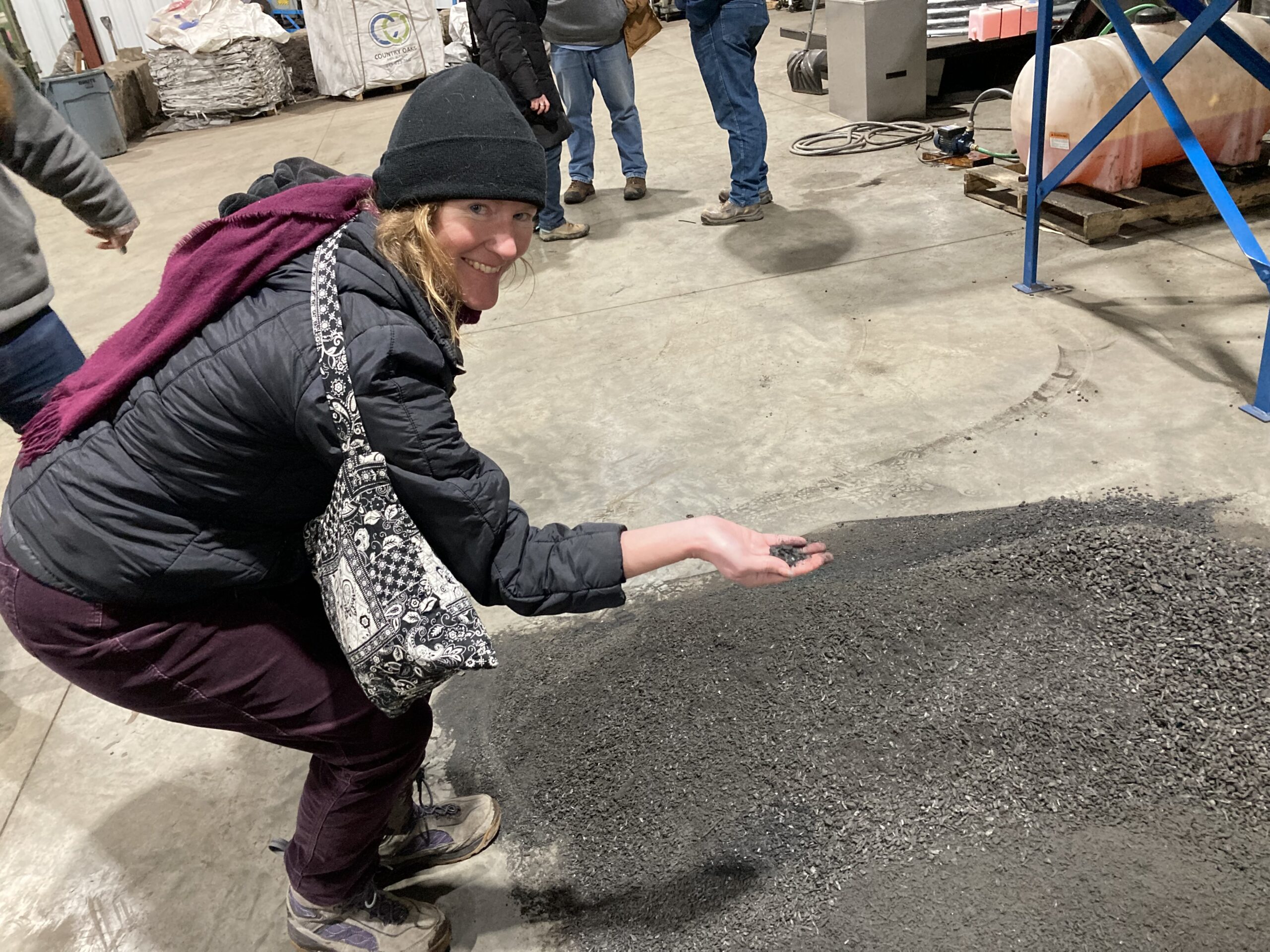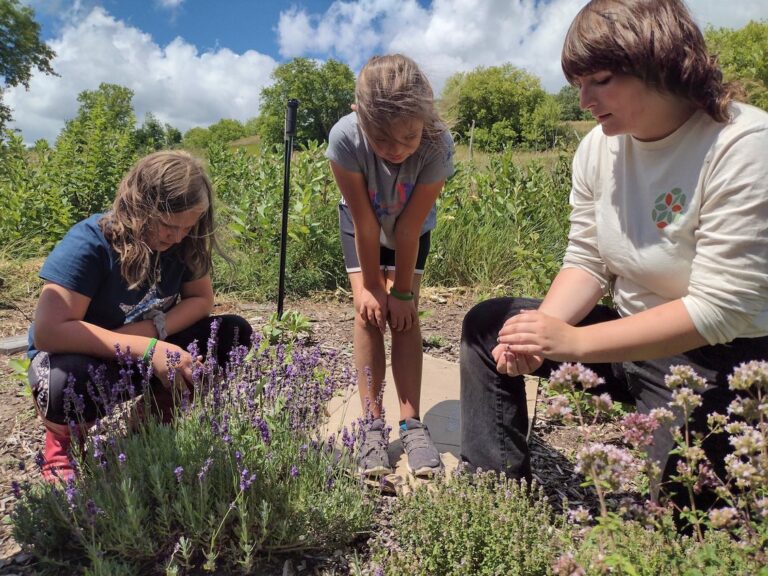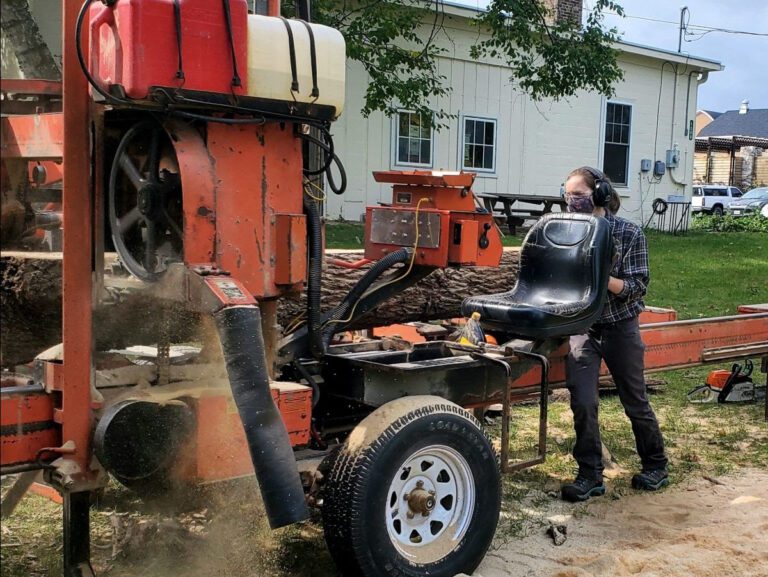BY: Sarna Salzman
SEEDS Executive Director
Composting is a rewarding and environmentally-conscious practice that anyone can engage in to contribute positively to the planet. Composting involves the decomposition of organic materials like food scraps, yard clippings, and fall leaves into nutrient-rich soil amendments. Nothing could illustrate a circular economy better than the cycle of dinner – to food scrap – to compost pile – to soil amendment – to garden – to vegetable again. Composting can be accomplished at a small scale in one’s backyard or even under the kitchen sink with a suitable box and the help of some worms.
As terrific and as accessible as backyard composting can be, we also need larger scale solutions and opportunities. This is why SEEDS and the NWMI Organic Waste Diversion Advisory Partners hosted a field trip recently to visit an industrial-scale composter located in Burton, MI called Country Oaks Landscape Supply. We traveled with representatives from EGLE, the City of Traverse City, Carter’s Compost and other stakeholders. At Country Oaks, the owner Mark Cherry took us on a tour of his five-acre site and the processing technologies he uses to collect and process over 25 cubic yards (over 25,000 lbs) of organic material each year. Though it was a cold and snowy day, his piles were steaming hot!
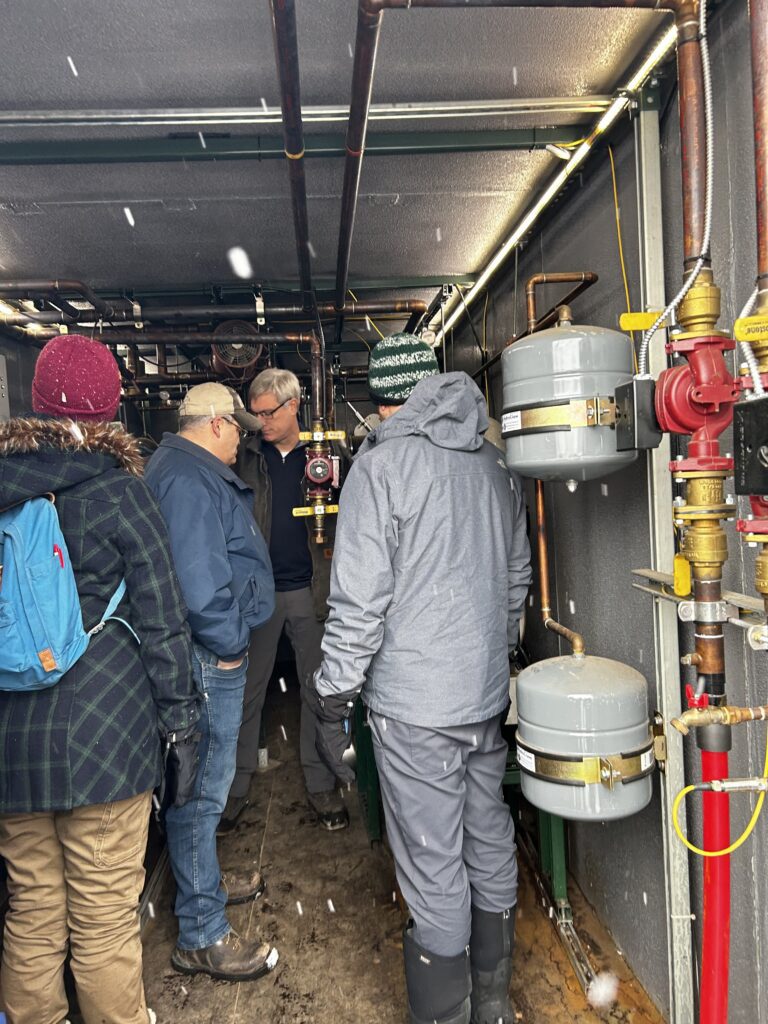
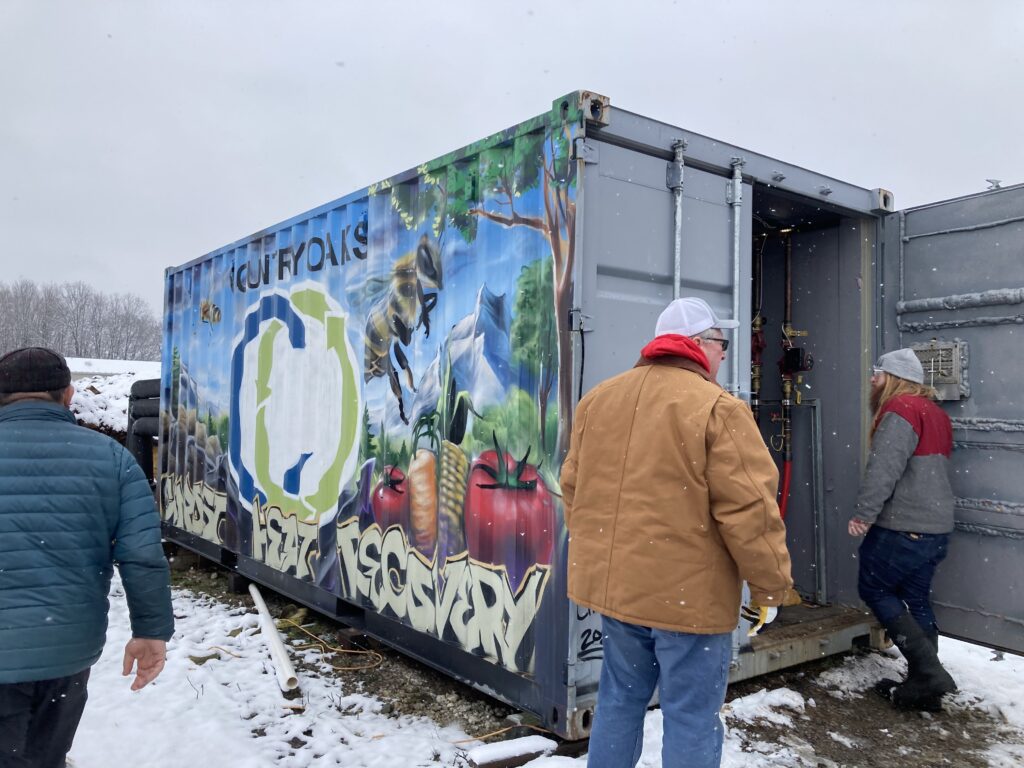
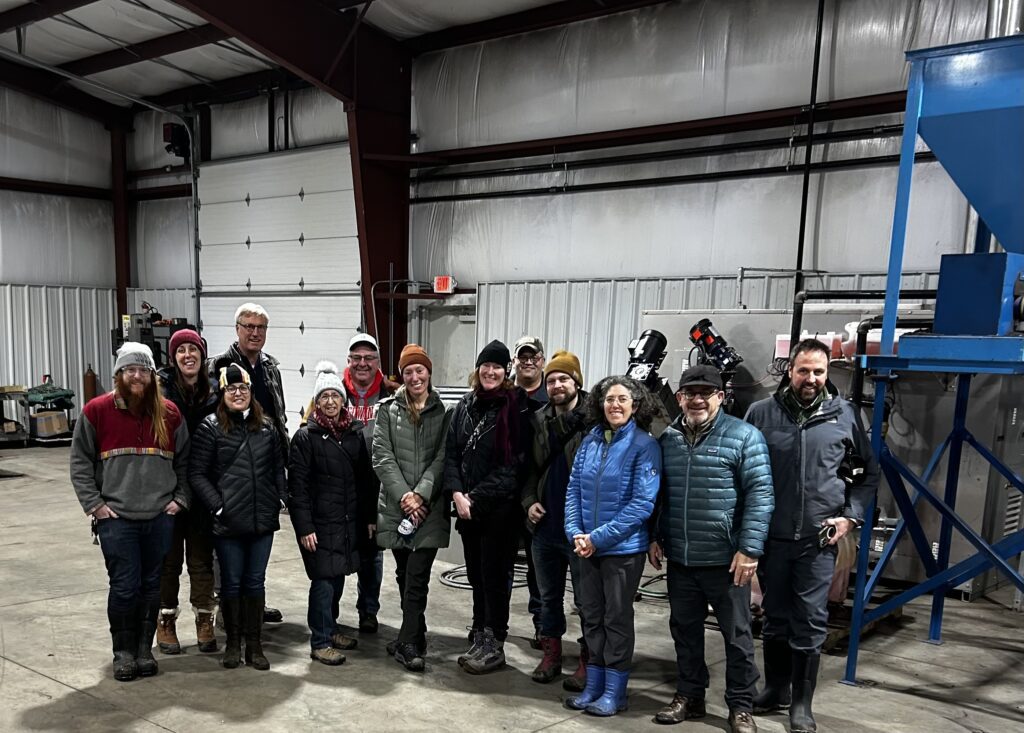
NWMI Organic Waste Diversion Advisory Partners pose for a group photo while touring the Country Oaks Landscape Supply in Burton, Mich. There were representatives from EGLE, the City of Traverse City, Carter’s Compost and other stakeholders in attendance.
While many of us may be familiar with windrow composting, where long berms of organic matter are turned periodically to keep the materials mixing and to maintain oxygen levels, Country Oaks uses a technology called Aerated Static Pile (ASP) management. The benefit of an ASP over a windrow system is that it requires less space to manage and fewer management hours of labor. In an ASP system, air is forced through the piles with pumps and there is little need for turning/mixing. Once these ASPs have finished “cooking” (did you know an actively composting pile maintains a temperature between 131-170 degrees Farhrenheit during decomposition?), they are mixed and windrowed for another two months to ensure a homogeneous product, and then the material is cured before use. Country Oaks was a landscaping company that got into composting, vertically integrating the recycling of organic wastes into valuable soil amendments, and is now pursuing biochar production as well.
Country Oaks operates directly adjacent to a residential area. One of the aspects that most impressed the day’s visitors was the biofiltration system used for the exhaust air. How many of us have smelled the awful smell of decomposition gone awry? Even under the best of circumstances, the composting process generates some noxious gasses. At Country Oaks, exhaust air is filtered through a mixture of brush and other organic materials which host bacteria that feed off noxious gasses like hydrogen sulfide and amonia so that only sweet, clear air is released.
Could an ASP system be a viable solution for the Traverse City area and inspire 8500 tons of food scraps to be collected and turned into compost? Where could it be sited and who would haul materials to it? We will be pursuing answers further during 2024!

